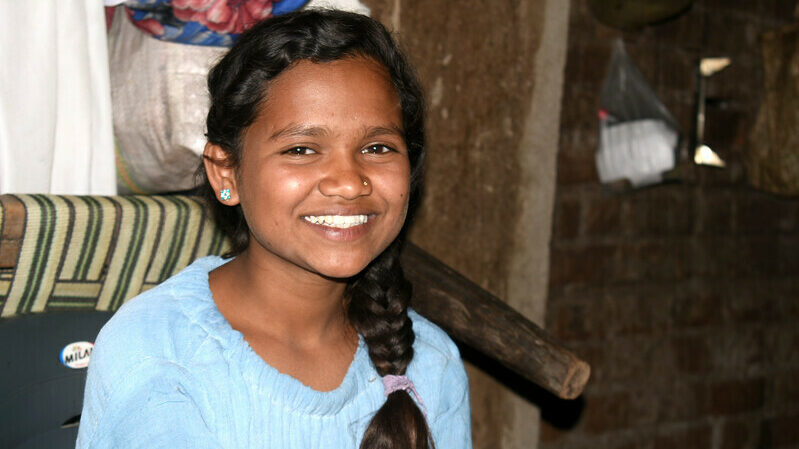6 Years After Rescue, Survivors of IJM’s Largest Rescue Are Thriving
Labor Trafficking
March 3, 2016, started just like the day before. And like so many days before that: wake up at 3 a.m., eat little or nothing, and toil beneath the sweltering South Asian sun. All day and into the night, laborers were forced to make bricks—an arduous, back-breaking task—just to go to bed hungry and get only a fraction of the sleep needed. Then they'd rise before dawn and start the whole ordeal over again.
At this brick kiln rife with abuse, exploitation and violence, hundreds of men, women and children worked relentlessly, day after day, for the benefit of the kiln owner.
But March 3rd was not to be like the day before: it was to be the day of their rescue.
In IJM’s largest operation ever, done in partnership with police and government officials, 564 people were rescued.
IJM then supported the survivors on their journey to recovery and rehabilitation as they learned new skills—like basic finances, family planning and trauma recovery—and how to avoid being re-trafficked.
That was six years ago, and now, as IJM celebrates its 25th anniversary, we followed up with a few of the survivors and are encouraged and inspired to learn how they are thriving in long-term restoration and transformation.
Basant
“I am very happy and content. I am financially secure, and my family is safe. I have employed 6 people from the village, and I have earned respect and dignity.”
Those words were Basant’s reassuring and comforting response to the question, “How do you feel about your life today?”
When Basant, his wife, and little son had been enslaved at the brick kiln, they were continually verbally abused and the living conditions were pathetic, he said.
But once they were rescued, Basant was able to secure a bank loan and begin cotton farming. After that, he launched a business renting out items needed for weddings and other events—everything from chairs to plates to decorations. From there he went on to buy his own van to help run his business. “It was difficult when I started,” he said, “but it is rewarding now.”
Though the pandemic slowed down Basant’s business, it’s now picking up again. As he looks to the future, he is full of vision and hope: “I am hopeful [my business] will grow in the coming years. I wish to construct a house and a bigger warehouse... I wish to send my kids to school and provide them with all kinds of educational support.”
Charukeshi
Just seven years old at the time of her rescue, Charukeshi hadn’t fully grasped the gravity of her family’s plight.
Before they became captive at the kiln, Charukeshi was pulled out of school to accompany her family there, but she wasn’t worried. She was told they’d be going to a different city, and to her, just a little girl, it sounded like an exciting trip.
Once at the kiln, she remembers playing with the other children there. To her, turning the bricks under the hot sun was a game; she was too young to realize she was enslaved and being exploited.
After her family’s rescue, Charukeshi’s father worked hard delivering packages to businesses, Charukeshi returned to school and a baby brother was added to the family.
These days, Charukeshi is passionate about school and never skips class. “I want to continue my studies and go for higher education,” she said. “Today, my life is all about studies and friends. I also love spending time at home with my family and am glad they are all fine and in good health.”
Satyaban
“Life has been kind to me,” Satyaban said. “I am active in the community and assist the villagers in whatever way possible.”
This is how Satyaban describes his life today, six years after rescue.
Satyaban was recently elected to serve on his village council, which he called “a big win,” adding, “I feel proud of how the community [puts] faith in me and are respectful.”
He’s also a key leader for a local chapter of the Released Bonded Laborers’ Association (RBLA), which is a branch of IJM’s Global Survivor Network. “There is a great sense of satisfaction when I can support people, and I think RBLA is going to provide me with yet another platform,” he said. “In the coming days, I wish to serve the locals and sensitize them about the evils of bonded labor.”
Satyaban and his wife had been enslaved at the kiln because of a debt, and when the kiln owner assaulted a woman and fractured her backbone, they were terrified. However, it was after that incident that another laborer managed to make calls for help, which ultimately resulted in the mass rescue.
Once Satyaban and his wife began their journey to restoration, IJM taught them about government benefit programs they were entitled to. The couple worked as daily laborers for government projects for a few years before Satyaban moved on to other work. Since the COVID-19 lockdown, he has returned to farming. By growing watermelon and vegetables on land that he has leased, he is able to earn a steady income.
Satyaban’s desire is to be financially stable, build a house for their family, and see his son get an education and a good job. “My family is my driving force,” he said, "I wish to provide them with all that is possible and never let any harm befall them.”
The work ethic and caring nature exhibited by Satyaban, Charukeshi and Basant are stirring testimonies to the courage and determination of these survivors who will not let the trauma of the past define their future.
These stories demonstrate the power of rescue, restoration and holistic justice system strengthening. Thank you for joining IJM and our global partners in the fight to end labor trafficking and increase protection for vulnerable people in poverty. Together, we are creating a better, safer world for generations to come.